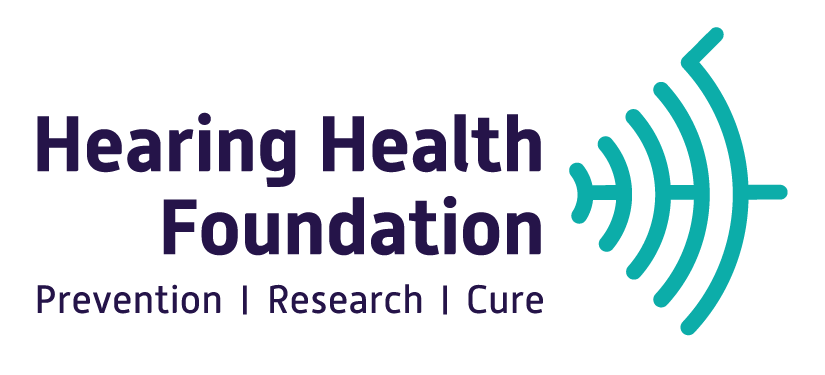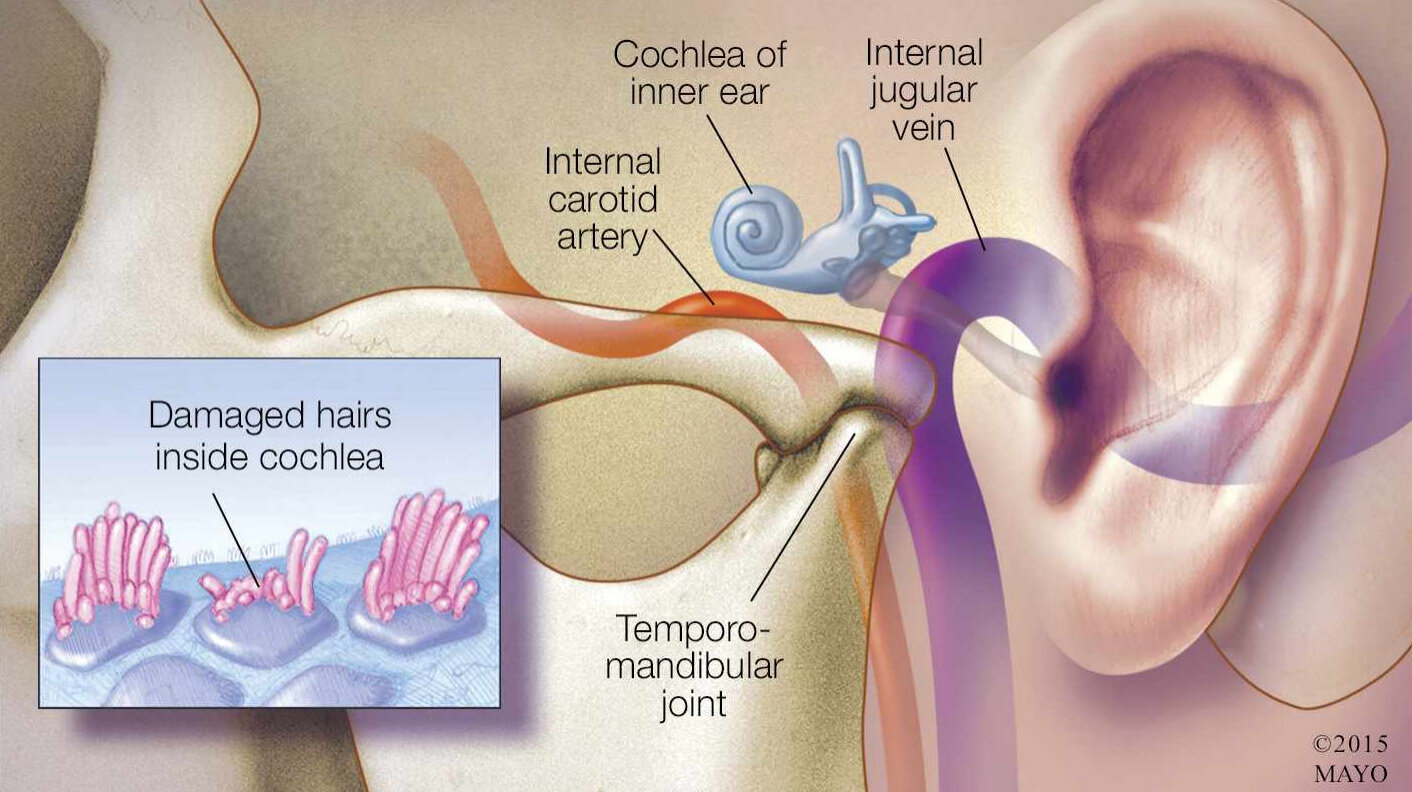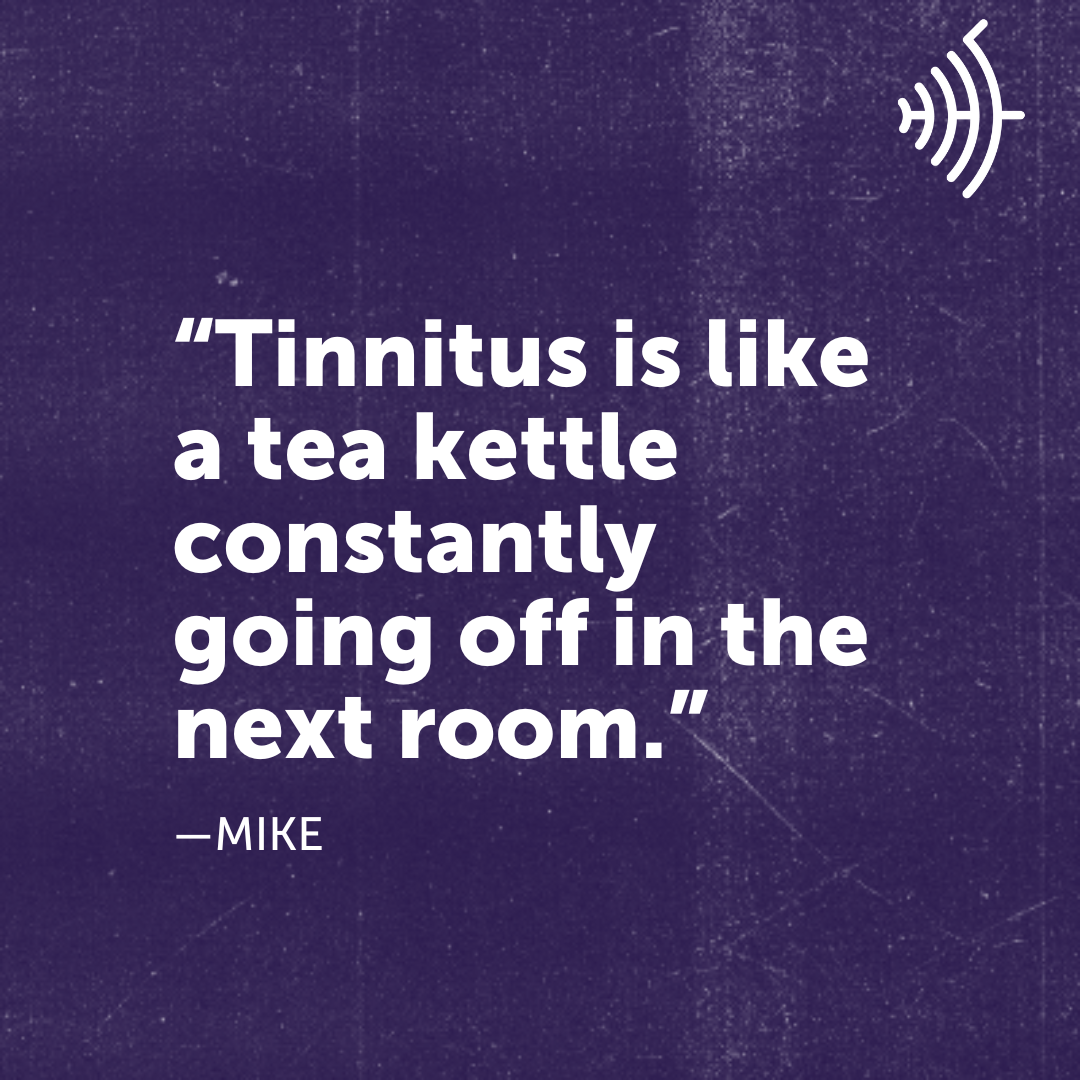Tinnitus Treatments
The following is general information only. HHF does not offer medical advice. Please consult your hearing care professional with any specific questions about your auditory health and healthcare.
If your tinnitus is due to a health condition that can be treated, your doctor can help you take steps to reduce it. Examples include:
Earwax removal. Removing impacted earwax can decrease tinnitus symptoms.
Treating a blood vessel condition. Underlying vascular conditions may require medication, surgery or another treatment to address the problem.
Changing your medication. If a medication you’re taking appears to be the cause of tinnitus, your doctor may recommend stopping or reducing the drug, or switching to a different medication.
Counseling & Sound Therapy
For many people, counseling combined with sound therapy is able to provide tinnitus relief.
Cognitive behavioral therapy (CBT): This method of counseling has been used for depression, anxiety, post-traumatic stress disorder, and other conditions. It focuses on restructuring the negative reactions toward and regaining control over the condition. In addition to relaxation techniques, CBT teaches patients that while the tinnitus can’t be changed, attitudes toward it can be changed in order to better manage it.
Tinnitus Retraining Therapy (TRT): Developed by Pawel Jastreboff, Ph.D., of Emory University, and in use for more than 25 years, TRT is regarded as the gold standard for tinnitus treatment. It aims to achieve habituation to your tinnitus. This means you are no longer aware of your tinnitus except when you focus on it, and even when you do notice the tinnitus, it does not bother you. It is combined with low-level, broadband sound generators.
Tinnitus Activities Treatment (TAT): This therapy developed by Emerging Research Grants scientist Richard Tyler, Ph.D., of the University of Iowa, involves counseling of the whole person, using a picture-based approach that facilitates engagement with the patient, and an incremental activities approach to reinforce understanding and track progress. Often combined with low-level sound therapy, TAT focuses on these four areas:
Sleep: The patient learns about the sleep cycle and how certain habits can affect sleep. Effective strategies to use before and during sleep are taught, and the use of background sounds and relaxation exercises are discussed.
Hearing: The patient is taught strategies to improve hearing and communication and, when appropriate, the use of hearing aids is considered.
Emotions: The patient is asked to describe fears and concerns about how tinnitus is affecting his or her life and health. Patients are taught that they can change their reactions to their tinnitus.
Concentration: Patients are asked to identify situations when tinnitus interferes with concentration. They practice doing activities that require different levels of attention and, in some situations, use background sounds to help.
Progressive Tinnitus Management (PTM): Developed by the U.S. Veterans Administration, this therapy uses elements of TAT as part of its incremental approach that includes comprehensive patient education, behavioral therapy, and when needed, supplemental sound therapy.
Sound therapy works by making the perception of the tinnitus less noticeable through ear-level maskers or tabletop devices. However, some report that noise exposure from the sound therapy made their symptoms worse. Patients should ask their hearing care professionals about this before undertaking any form of sound therapy.
Sounds include:
White noise: Broadband sounds can be effective maskers because they sound like radio static. Some devices play environmental sounds such as rain or ocean waves. A fan, air conditioner, or dehumidifier can also provide masking sounds. Other “colors” of noise are available, such as brown, pink, and violet, that are often also used as sleep aids.
Music: Studies have found music to be effective for encouraging relaxation and reducing anxiety. Music can also help distract you from your tinnitus. Most clinicians use mild, moderate-tempo, instrumental music rather than fast-tempo music or music with vocalists, which can feel more stimulating than calming.
Modulated tones: Amplitude and frequency can be varied, resulting in softly pulsing tones. Some patients find this a more effective, acceptable, and relaxing sound.
Notched sounds: “Notched” sounds refer to sound with a portion of the spectrum removed, or filtered out. Some approaches remove some frequencies from the frequency of the patient’s particular tinnitus pitch. Other strategies remove frequencies around the patient’s pitch match frequency.
Hearing aids: These can help address any underlying hearing loss well as tinnitus, and some hearing aids have a tinnitus masking program.
Neuromodulation (Brain Stimulation Therapies)
Neuromodulation therapies are often used when other conventional treatments have not provided sufficient relief or have resulted in significant side effects. These therapies are typically performed under the guidance of medical professionals, and the specific technique chosen depends on the individual's condition and response to treatment.
Neuromodulation therapies work by altering the electrical or chemical signaling within the neural circuits to restore typical functioning or alleviate symptoms associated with neurological disorders. These therapies can be used to manage chronic pain, movement disorders, epilepsy, psychiatric conditions, and other neurological conditions, including tinnitus.
Neuromodulation using transcranial magnetic stimulation (TMS) is a painless, noninvasive therapy that has been successful in reducing tinnitus symptoms for some people. Currently, TMS is utilized more commonly in Europe and in some trials in the U.S. It is still to be determined which patients might benefit from such treatments.
Medications
Some medications have shown to provide relief to tinnitus sufferers and may help reduce the severity of symptoms or complications, including:
Tricyclic antidepressants, such as amitriptyline and nortriptyline, have been used with some success. However, these medications are generally used for only severe tinnitus, as they can cause troublesome side effects, including dry mouth, blurred vision, constipation and heart problems.
Alprazolam (Niravam, Xanax) may help reduce tinnitus symptoms, but side effects can include drowsiness and nausea. It can also become habit-forming.
Alternative Medicine
There’s little scientific evidence that alternative medicine treatments work for tinnitus. However, some alternative therapies that have been tried for tinnitus include:
Acupuncture
Hypnosis
Ginkgo biloba
Zinc supplements
B vitamins
HHF advises everyone to consult a physician or healthcare provider before taking any new medications to learn about potential side effects of these medications as well as any potential complications with any other medications being taken. It is also important to do your own research and review disclosures on the bottles of any prescription or over-the-counter medications to ensure they are right for you. If any adverse reactions occur, please contact your physician or emergency personnel immediately.
Peer-to-Peer Support
Many individuals benefit from peer-to-peer support for tinnitus. While HHF does not offer this resource, we strongly recommend the U.K.-based Tinnitus Talk online forum, a peer-to-peer support group for tinnitus that is part of Tinnitus Hub, which also has other tinnitus resources, including opportunities to share experiences as part of citizen science initiatives.
HHF offers general information only and does not offer medical advice. Please consult your hearing care professional with any specific questions about your auditory health and healthcare.
Reviewed in May 2023 by Rohima Badri, Ph.D.

















The road to more effective, less invasive, and faster developing treatments for tinnitus and loudness hyperacusis lies in focusing on the brain and not the ear.